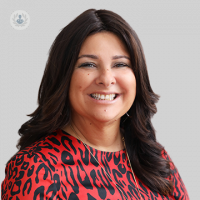Back to school: supporting your child with 'coronavirus anxiety'
Written by:For many children, heading back to school and starting a new academic year can be daunting as it comes with new challenges. With the coronavirus pandemic added to an already anxiety-inducing situation, children will need support.

The government is expecting all students and children to head back to school as of next term. We spoke to leading neuropsychologist, Dr Debora Elijah, to find out what factors fuel ‘coronavirus anxiety’ and feelings of nervousness about the prospect of returning to school. We found out the signs to look out for and how children can be supported during this time.
How do I know if my child is anxious about the coronavirus pandemic?
Chatting to your child and hearing them express their source of stress, worrying about health and safety, "germs", "people with germs".
Can returning to school be overwhelming for some children?
Yes, because we need to think that the children did not have a certain routine when lockdown was implemented. They do not know when they will return back to school, the feeling of uncertainty will increase anxiety.
The new "normal" at school i.e new regulations and rules at school, will be difficult to them to conform to and understand.
Why might this bring on anxiety or distress?
It can create feelings of uncertainty. Children also need to interact with others, as part of their social emotional development. COVID came so fast, the routine of the children changed without having time to prepare for this transition.
What signs should I look out for?
- Constant reassurance seeking
- Physical symptoms such as: stomach aches and headaches
- Tantrums
- Trouble sleeping
- Moodiness and irritability
- Diarrhoea
How can I help or support my child through all this?
We have three programs that are helpful for a child’s ‘coronavirus anxiety’ specifically:
- Parent support groups
- Social awareness behaviour sessions - the PROSCIG (c) intervention is designed around their thoughts and emotions, and creating strategies.
- Transition back to school sessions - PROSCIG (c) program designed to prepare the child to transition back to school
PROSCIG© intervention; a program built on the basis of cognitive behaviour therapy (CBT) and Spence’s theoretical framework. The program creates new strategies for social problem-solving situations and follows three unique models – social perception, social solving problems and self-regulation.
Through this programme, we help create awareness by targeting specific behaviours and help show the patient how their behavior during this time can impact others and themselves. We also work with the whole family network, in a holistic and dynamic way.
For more information on intervention methods such as PROSCIG, you may like to book an appointment with leading cognitive neuropsychologist Dr Debora Elijah. Visit her Top Doctors profile today for more information on neuropsychological treatment.


